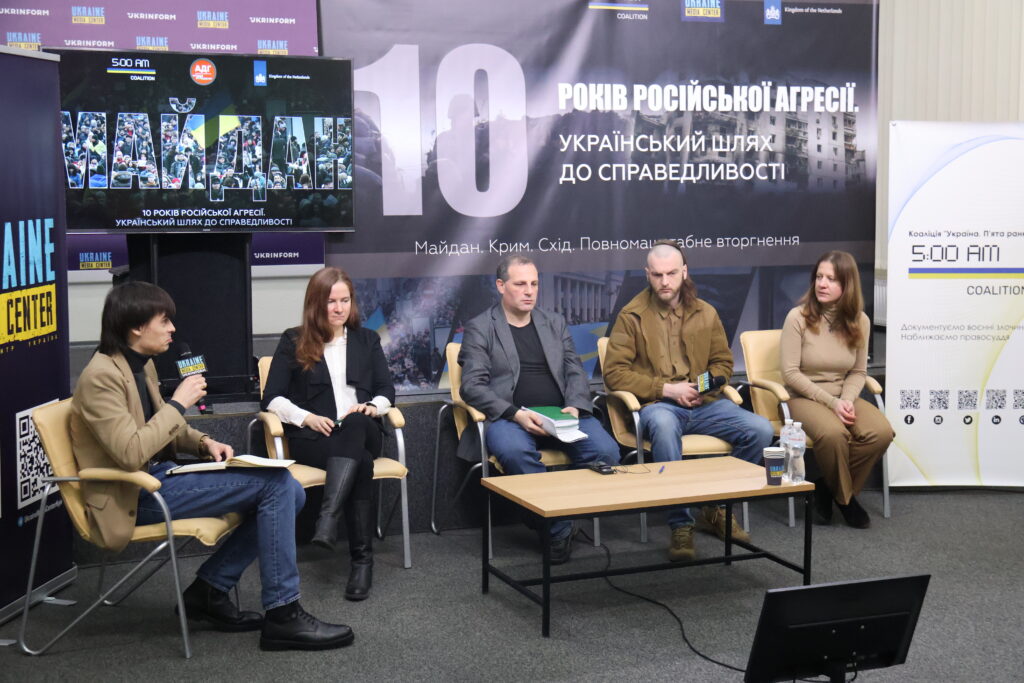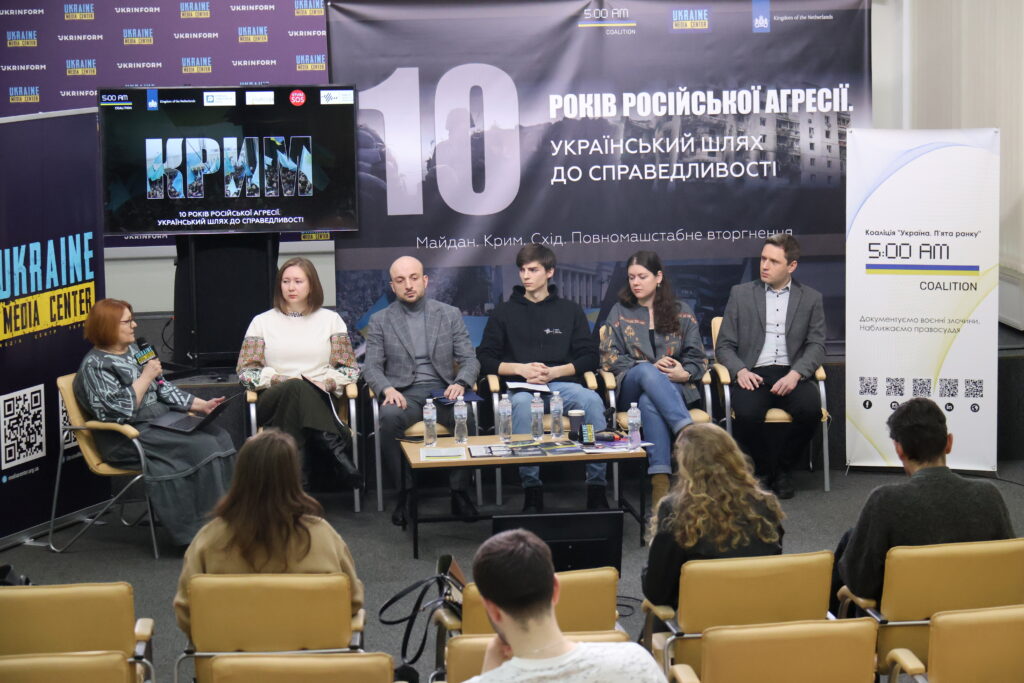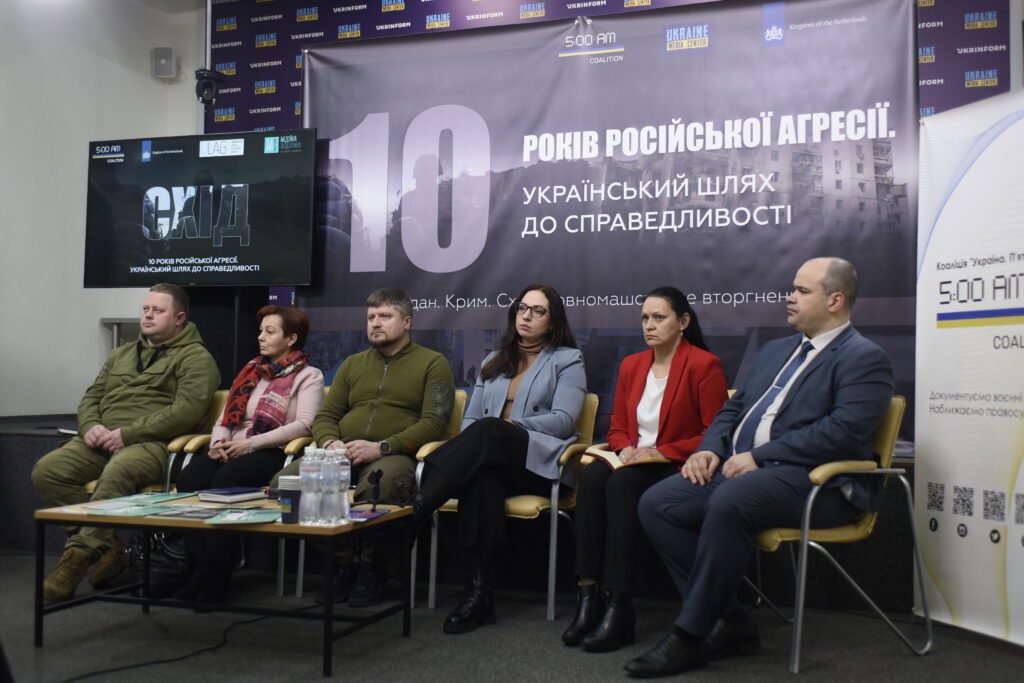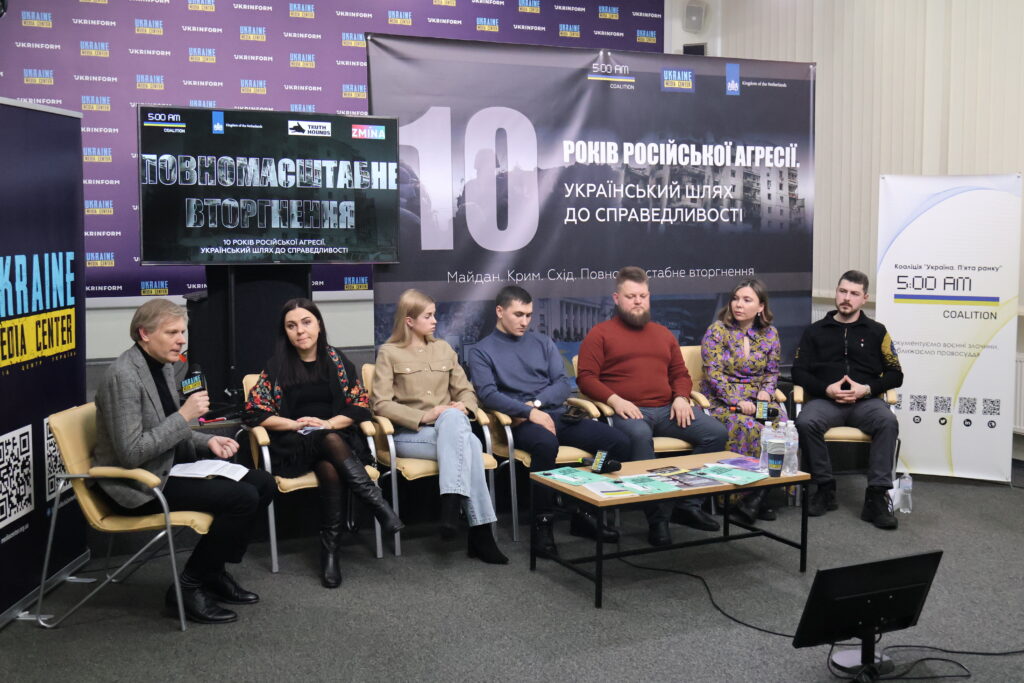Media marathon on 10 years of Russian aggression in Ukraine took place in Kyiv
The media marathon “10 Years of Russian Aggression in Ukraine. The Path to Justice” featured four in-depth panel discussions on key themes: “Maidan”, “Crimea”, “East” and “Full-scale Invasion”. Government officials, human rights activists, and victims were among marathon panelists.
During the discussions, which took place at the Media Center Ukraine – Ukrinform, its participants delved into the tumultuous events that have afflicted Ukraine during this period of the past decade, from the Maidan uprising to the all-out invasion. The event’s speakers deliberated on various topics, in particular, the outcomes of their efforts and encountered obstacles.
During the “Maidan” panel discussion, attendees were briefed on the ongoing legal proceedings related to the events that unfolded on Maidan Square a decade ago.
Oleksii Donskyi, Head of the Department for Maidan Affairs at the Office of the Prosecutor General, revealed that over 4,000 crimes were committed during Maidan, with thousands of cases currently before the courts.

“As of February 20th, one verdict has been reached regarding the perpetrators, while the prosecutions of other individuals involved in the Berkut special company are being litigated. Almost all perpetrators have been identified, and cases against the top leadership responsible for organizing the events of February 18-20 are also underway,” Donskyi disclosed, highlighting the significant challenges in resolving cases, particularly those concerning the events of February 18th where numerous murders remain unsolved.
He also highlighted a significant issue concerning serious crimes, noting that the statute of limitations has lapsed for them. According to him, there are 69 such cases.
“We’re facing a pressing issue with serious crimes. In fact, the window for prosecuting these crimes has closed. Currently, there are 69 investigations at risk. However, I’d like to draw attention to another concerning trend. As of today, only seven cases of serious crimes have been resolved, and in four cases, motions have been filed, indicating pending court consideration,” remarked Oleksii Donskyi, Head of the Department for Maidan Affairs at the Office of the Prosecutor General.
During the “Crimea” panel discussion, Vitaliy Secretar, First Deputy Head of the Prosecutor’s Office of the Autonomous Republic of Crimea and Sevastopol, provided an update on the criminal cases registered by the Crimean prosecutor’s office during the Russian occupation.

“We’ve registered over 3,200 proceedings, but it’s crucial to acknowledge that many of these are what we call mainstream proceedings,” he explained. Regarding the indictments forwarded to court, Secretar revealed there are over 550 of them. However, the number of verdicts rendered to date is significantly lower, standing at 107, a fraction of the total indictments.
In the “East” panel discussion, Andrii Leshchenko, Deputy Head of the Department for Procedural Guidance and Support of Public Prosecution within the Department for Combating Crimes Committed in the Context of Armed Conflict at the Office of the Prosecutor General, focused on the atrocities committed against civilian hostages and prisoners of war of Ukrainian military personnel in Donetsk and Luhansk regions.

“Throughout our work until 2019, we gathered testimonies from over 2,000 individuals who endured captivity in torture chambers across Donetsk and Luhansk, with some even held in detention facilities within Russia. This evidence sheds light on the systematic and extensive nature of these crimes within Ukraine’s borders. It underscores that these acts aren’t isolated incidents but rather part of a coordinated effort by those initiating this conflict and leading occupation administrations in these areas. With each investigation, we unearth more evidence implicating the involvement of Russia,” he elucidated.
Stanislav Petrenko, Head of the Department for Combating Crimes Committed in the Context of Armed Conflict at the Office of the Prosecutor General of Ukraine, conveyed his confidence in Ukraine’s ability to uphold justice during the “Full-scale Invasion” discussion.

“Each investigation, interrogation, and examination conducted isn’t just about resolving individual criminal cases; every effort is about preserving the truth of what occurred on our soil, particularly during the full-scale invasion, for future generations,” Petrenko articulated.
Furthermore, he asserted Ukraine’s strides towards justice, affirming that the current trajectory aligns with the right direction.
Read more: https://mediacenter.org.ua/news
 Back
Back 